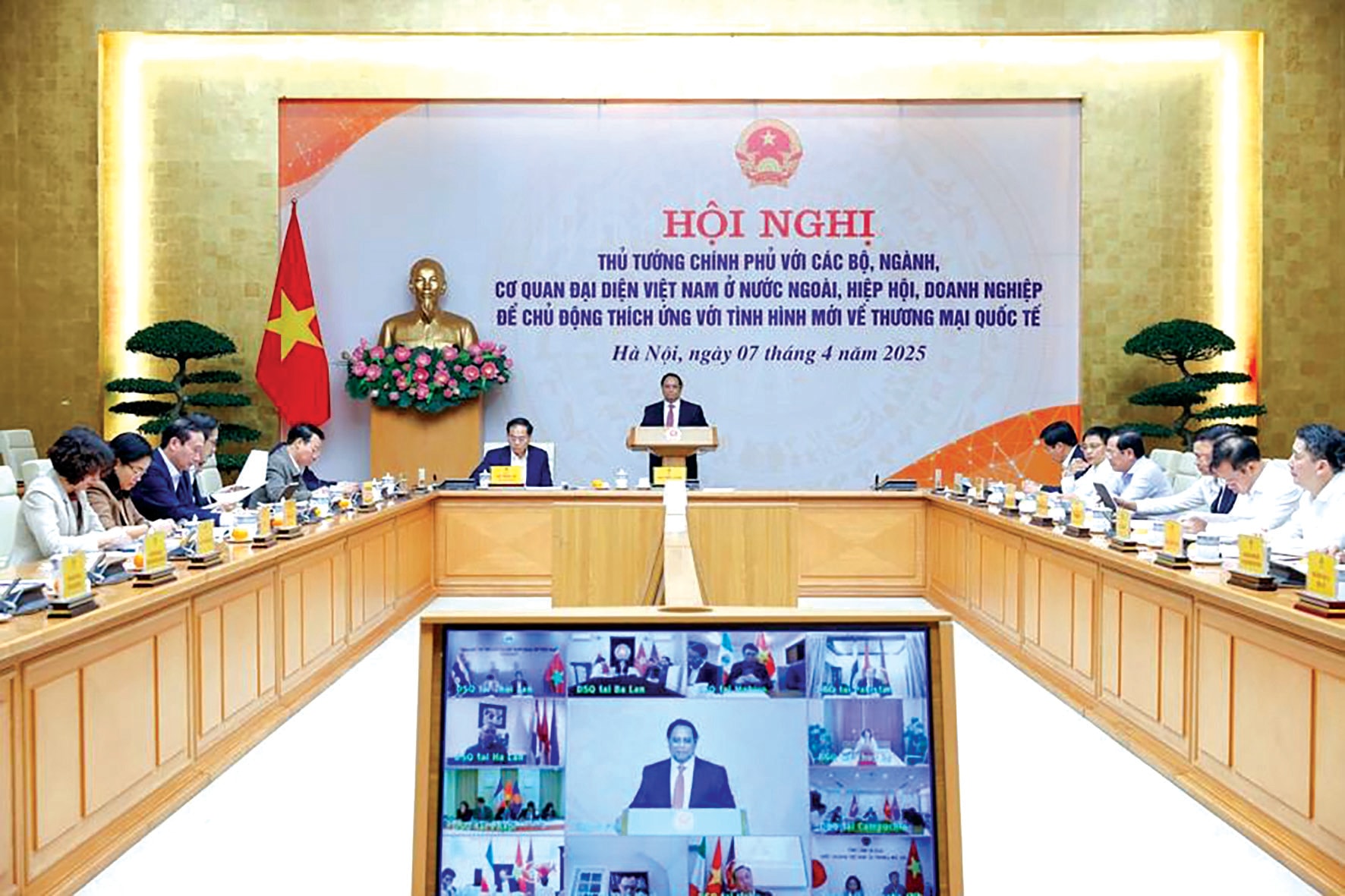VND 500 trillion credit package: A major "lever" for the Vietnamese economy
The biggest credit package in history, worth VND 500 trillion, will directly assist the Vietnamese economy's fresh growth drivers as well as its traditional sectors.

The State Bank of Vietnam (SBV) will quickly develop and carry out this preferential loan package in accordance with Prime Minister Phạm Minh Chính's direction. Its goal is to encourage investment in innovation, research and technology, and strategic infrastructure.
Expectations of a big boost
Strategic sectors, including research and technology, innovation, technological infrastructure, logistics, and highly knowledge-intensive enterprises, will be given priority in this financing package. Therefore, it will be different from mass-registered credit programs for different sectors and industries, moving beyond the first five priority areas to more general ones like the bank-business link program, etc.
When the economy is experiencing a global trade crisis, the government places a strong priority on reducing external risks by bolstering internal factors, such as enhancing infrastructure and encouraging economic drivers, as advised by economists.
"Promoting credit for strategic infrastructure projects will significantly support the economy and help businesses reduce operating and logistics costs," said ADB analyst Nguyen Ba Hung, adding that ongoing business reform and investment are necessary due to the geoeconomic change. The public-private sector must collaborate to meet sustainable development trends. Digital transformation necessitates the use of technology, such as AI, smart manufacturing, and e-commerce, as well as strong digital skills. The country's position in international value chains will be strengthened by adjusting to these developments.
How is the disbursement going?
The VND 500 trillion credit package is still under construction, but even now, economists believe that the speed and results of disbursement for this credit package will be crucial for its effectiveness.
Nguyen Hoang Hiep, an economist, confirmed that it is critical that the government swiftly create and introduce this credit package. Businesses would benefit greatly from this in a situation when export-related industries may momentarily stall as a result of US tariffs, and consumption requires the coordinated adoption of support measures to recover. Major strategic infrastructure projects that require counterpart finance are still the main emphasis among them; these are already covered by this year's extensive public investment distribution program. This will enhance the dual impact of public investment promotion spillovers on employment and GDP growth.
In actuality, banks, headed by Vietcombank, BIDV, Viettinbank, and others, have expanded their lending ceilings this year by allocating funds for major infrastructure projects and significant projects. In addition, several commercial banks are involved in infrastructure projects, lending money throughout the manufacturing chain, supplying building supplies, etc.
Pham Luu Hung, Chief Economist of SSI, claims that banks are no longer reluctant to lend to infrastructure and BOT projects. The Public Investment Law of 2025, which went into effect at the beginning of this year, and the government's tenacity and careful oversight in removing project roadblocks to encourage investment have greatly accelerated the investment-completion and revenue-collection stages of projects. Banks will continue to expedite loans for this industry since investors may get compensation upon project completion and make timely debt repayments.
Many firms still have trouble getting money from banks because of stringent borrowing criteria, exorbitant interest rates, and a lack of collateral, despite the government's attempts to enhance loan availability. "Limited financial literacy and an inadequate credit information system further complicate loan access, highlighting the need for reforms to enhance financial coverage and support growth," said Nguyen Ba Hung.
Accordingly, economists believe that the most important requirement for preferential credit packages in general and the VND 500 trillion credit package in particular is to provide circumstances for getting loans that are appropriate for the realities of enterprises. In order for enterprises to achieve the goals of fostering business development and guaranteeing future loan repayment, the framework for evaluating financial capability must guarantee present support elements.








